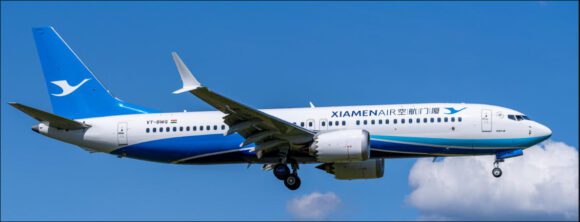In the business of buying airplanes, an airline will always seek the lowest cost. Just as they do with every other production input – lowest cost wins every time. So how is it that with the pending Azul order, “Boeing has not been given the opportunity to present a proposal for single-aisle airplanes“?
On the face of it, this looks like a selection that could not secure the lowest costs for Azul. How does this make sense? As an Azul shareholder you would want to be certain your company secured the lowest cost option. Let’s go through some data points and thoughts to see if a pattern emerges.
Airbus wins the deal:
- Creative marketing on the side of Airbus.
- Driven by the fact the airline already committed to A330 and A350-900s
- Which offers common flight-deck ratings
- And, lets say it again, creative marketing. Volume drives discounts.
- Remember Air Canada selected 777 and 787 and then chose MAX, much to the chagrin of Airbus.
- Could this be a pattern? Win the twin and then the single follows…who knows?
- Remember Air Canada selected 777 and 787 and then chose MAX, much to the chagrin of Airbus.
Boeing loses the deal:
- They did not win the widebody selection – as stated above
- Nothing about MAX indicates it cannot compete with neo – on price or economics
- There is no reason to think Boeing being denied a chance to bid is false or “gaming”
- Therefore…
The other shoe:
- David Neeleman is in firm control at Azul – he calls the shots
- He started out an Airbus fan at jetBlue and has been eying the neo for a long time
- He selected IAE engines at jetBlue; does this give the GTF a leg up on the neo order?
- jetBlue, after he left, was unhappy with the CF34s on the E-190s
- His public impression that no selection has been made is likely a strategy; this does not mean its true
- Brazil wants Azul to stay focused on Embraer over anything else
- Azul is launch customer for Embraer’s E2
- He needs to keep the Brazilian government supportive – giving an impression no decision is made has value
- A month ago he suggested the selection was still competitive
- Brazil wants Azul to stay focused on Embraer over anything else
In fact, in this story (Portuguese), the paraphrased and translated statement “…Azul is negotiating with Airbus and Boeing about buying 35 aircraft for flights in Brazil, said the company’s founder, David Neeleman“, is a problem. As is the statement further on stating “…is evaluating proposals from manufacturers.” Based on the first quote above from Boeing one reasonably deduces Boeing never got an RFP. The selection therefore cannot be competitive. Would Boeing not want to compete against Airbus? Of course it would.
Intriguingly, in saying Boeing was not given a chance to compete, Boeing is sending a message to Toulouse – you don’t have to discount this deal. Which again brings up the issue: how does an Azul prove the company is getting the best deal?
It would seem that Airbus has numerous advantages. A win for them looks plausible. Boeing being left out could be seen in Mr Neeleman’s past selection choices. He is doing what he needs to get what he wants – an impression of competition is bound to keep Airbus sharp. (Unless Airbus understands Boeing’s messaging) It also should ensure the Brazilian government feels the selection is competitive, after all Embraer has won no matter which of the next aircraft are selected.
This is a fascinating business.
Views: 0




No one man should make a fleet decision which seems to be based on a dislike for Boeing.
Maybe Mr. Neeleman likes LD3-46 containers.
I also don’t know how much insight Mr. Neeleman had on other 737Max orders or competitions to go on without a direct offer by Boeing. Therefore someone doesn’t need a direct offer to make a reasonable decision.